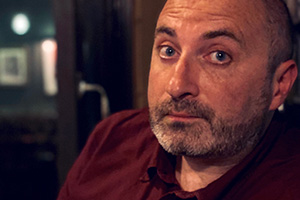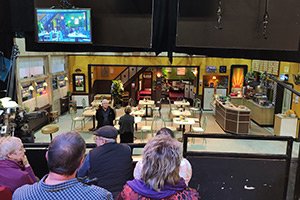Things to do before you start writing a sitcom

Writing a situation comedy is hard. Really hard. Even the ones that make it to screen aren't always well received. Dramas have it much easier - they just have to write "and then the mum dies" and it's job done in terms of triggering the desired emotions in the audience. Comedy writers not only have to come up with characters, structure, plot and dialogue just like a drama writer... but they have to add a whole layer of laughs on top too. Laughs that are good and work. Laughs that will appeal to lots of people: and remember, when it comes to comedy, we all have deeply personal and intricate tastes.
Because it's so hard, dedicated courses focusing on writing narrative comedy have been created. For example, you can sign up to a focused Master's course in Comedy Writing now. Created and led by award-winning comedy producer and former BBC executive Simon Nicholls, Falmouth University runs a flexible online course that you can study part-time, from anywhere.
The course includes writing tips and career guidance masterclasses from the very best in the industry, including sketch comedy heroes French & Saunders, Emmy and Bafta-winning comedy writer Simon Blackwell, Radio 4 comedy commissioner Sioned Wiliam, writer of hit Sky comedies Bloods and Trollied, Paul Doolan, and former head of BBC and Sky comedy commissioning, Lucy Lumsden. Dawn French - the chancellor of Falmouth University - is backing the course.
As well as teaching in-depth comedy writing skills and building a portfolio of writing to best showcase your talent, the course teaches you the street smarts of how to best navigate the comedy industry: how to grab opportunities, how to approach producers and agents and how to make your work stand out from the crowd.
We'll leave it to the MA to explain the intricacies of plotting, script structure, industry opportunities and other such topics, but we thought we'd ask the MA's course leader, Simon Nicholls, to write us an article on a topic we've not really seen much written about: What you should do in the early stages of a comic idea; before you type your first word.
Here's some thoughts and suggestions from Simon:
Think about your world and check it's a fresh idea
Start by thinking what you really want to write about. It doesn't have to be 'this is the comedy I must write before I die' but it should be something that at least really excites you: that you're passionate about. That you feel you could have real fun with.
What do you really want to write? Is it a sci-fi sitcom set on a dying asteroid, featuring your silly jokes? Is it a moody urban setting with realistic depictions of being on the breadline? Is it a flatmate sitcom? Or a show where you hear the character's inner monologues? A sitcom about the life of your favourite pet cat?...
Once you know roughly what you want to write about, you can start planning and researching your comedy's world.
But wait - before you do this - check your idea hasn't been done recently! Understandably, commissioners tend not to like making things that are similar to other things, so if there's just been a sitcom about a pet cat on Radio 4 - Tiddles - then your own feline thoughts might already be dead in the water.
It's worth pointing out this is not a hard-and-fast rule. For example, there can be more than one sitcom set in an office on television at any one time, but your set-up definitely needs to be sufficiently different to warrant your idea gaining traction. Let's say there's recently been a sitcom about zombies on a canal boat; it's almost guaranteed that the industry won't commission a different sitcom with that same premise for a while (unless you have Christian Bale attached to star - actually, he'd be great in a zombie canal boat comedy...). So, when considering a new comedy idea, you need to be thinking: "What's my idea bringing to the party that is different and will grab the audience?".
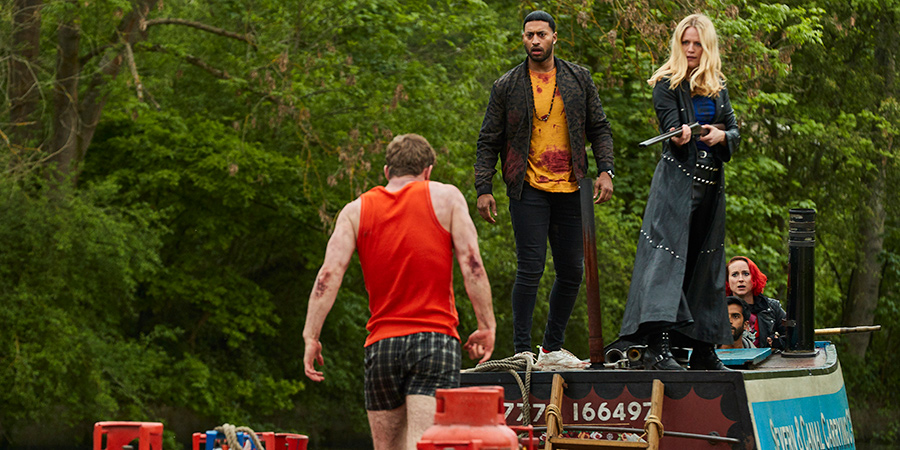
And don't just look at what has recently been on: go deeper. Do your due diligence and check what the channels have already signalled is in active development too. There's a comedy coming up on BBC Two set on a maternity ward... so they won't be looking for another baby-delivery comedy for a while.
Handily for you, you can use British Comedy Guide's database to find what has been broadcast in the last few years, as well as gaining intel on what's coming up.
If you have a title for your show in mind already, search for that too; to check no one else has used it already.
Think about the platform
Once you've checked that you're good to go with developing your comedy idea, next it's time to think where you'd ideally like your sitcom to appear. Is it a stage show, is it a radio sitcom, is it a TV series, or an online format?
I mention this point now because pretty much everyone seems to be working on a TV series idea. However, it is radio that commissions and broadcasts the most scripted comedy from newer writers, so actually developing a show for radio / audio should perhaps be your first port of call!
Knowing your chosen medium before you start writing is crucial: especially when it comes to figuring out the tone of your show. There's no point you writing a mime scene or a visual slapstick moment if you're going to be pitching your idea to Radio 4 or Audible.
Likewise, TV is unlikely to have the budget to make your show if it's about a demolition team who do huge Hollywood-style explosions every 7 minutes.
And if it's going to be a touring stage show, then you probably can't have a cast of 30 in a scene at any point.
You get the idea: be conscious of the medium you're developing your idea for and embrace it. On the Falmouth MA, we look at the specifics of embracing the medium you're writing a comedy script for: whether that's TV, audio, online or a short comedy film.
Give yourself some time to just think
So you've got your rough premise for your comedy, and you have a goal for where you'd like to initially see it appear. Now it's time to just think.

Good ideas take time to form, and the world you're creating will take you a while to fully realise in your mind. Yes, you might know you want to write about a fire station... but if your idea is going to sustain multiple series, you'll need to think up all the solid foundations for it.
If you can, take time to observe people in the world you're thinking of writing about. How do they talk? What are their thoughts? How do they dress? What is the situation they're in actually like? Watch / listen to documentaries on your comedy's world. Try to encounter people linked to your premise: meeting and talking with people can be a great inspiration for building your characters and obtaining potential storyline ideas.
Inaccuracies will kill the realism of your show - if something jars with the viewer, that alarm bell will bring them out of the world and stop them believing in your characters. For example, if you're writing about a heart surgeon, you should probably know the correct terminology she would use, rather than have her say "the tube thingy is blocked, we need to give him heart drugs". If anyone ever says that to you in a hospital, ask for a referral.
If your comedy is about vampires, you may have trouble getting in touch with Dracula - but you can at least read up on the common folklore surrounding the creatures so you don't confuse everyone by having an episode set at a summer fete.
If your sitcom is deliberately not intending to be realistic, there's still the "rules" of your world to think about. Can your time travelling characters meet themselves? Is that robot you invented indestructible? What gender are the two deep-sea blob fish who live next door - will they potentially be having kids in a future series?
Just like it takes a while to think what you're going to call a human baby, it takes time to mull over character names too. Is the fire station commander called Jeff or Lance... this is a name that might be around for many series, so give it serious thought.
What's your show actually about?

The best comedies have a clear point of view and human story at their heart. The late great comedian and writer Garry Shandling said that his own series The Larry Sanders Show was a series about love and how the need for fame and fortune screws that up. On face value it was a satire about the making of a TV chat show, but there was a clear human angle at the show's heart. When writers pitched Garry ideas for the show, they would say, "It's an episode where Hank takes over as host one week, because Larry is ill." Garry would reply, "Yes, but what's that episode really about? What's the human story? What does it mean to Hank?"
So always ask yourself, 'what's the emotional story here?'. Allow yourself time to consider and figure out what your show is 'really' about.
Ensure you're in love with the idea
Once you've done a lot of thinking, you should check you're still enjoying your idea. Yes, you were originally excited by the concept: but now you've started work on it, do you still feel the same?
When you develop a comedy idea, you'll be investing a lot of time, effort and sweat into getting this show commissioned, so you've got to REALLY want to make it and write about this world for some time to come.
Commissioners are good at spotting when someone doesn't really have passion in their project; and you'll probably be hating your life if the show starts paying your bills but it feels a chore to write. Remember Ricky Gervais's character in Extras? He wished he hadn't written When The Whistle Blows.
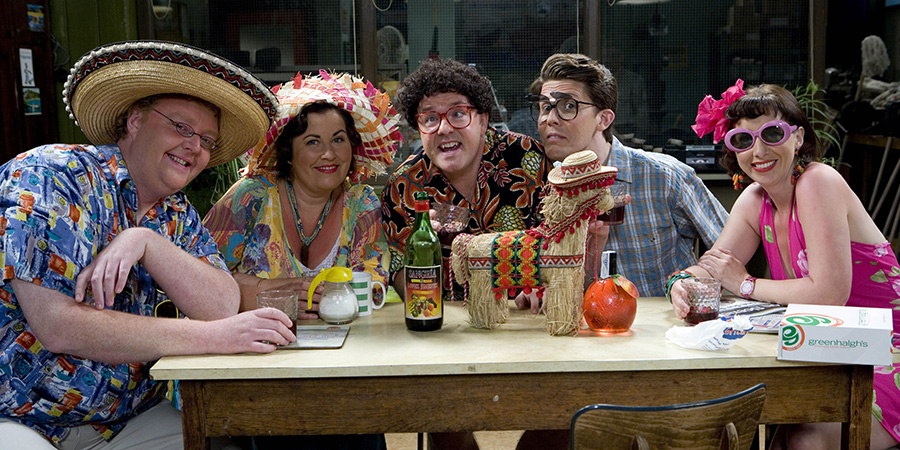
What I'm saying here is - yes - you may have spotted there's a gap in the market for a sitcom about model railway collectors, but if you don't actually like trains or forests made out of fuzzy felt - do you really want to spend the next five years of your life writing about them?
Get the right writing environment
Aside from maybe making some notes, you probably shouldn't have actually scripted a single word yet. We're still not ready to do that yet either...
To be truly creative (and funny) you need a good environment to work in. I mean that in a physical sense - i.e. find somewhere comfortable to write. Do you need a desk?
Also in the mental sense too though. If you're trying to write your sitcom on the noisy, smelly crowded bus on the way to work with an uncomfortable face mask on, you're probably not in the best place to deliver your best work (unless your sitcom is about a fed up commuter of course).
So setup a comfortable environment - you're going to be spending the next however many weeks preparing your first script here.
There's one more step to take before you write "Scene One" though...
Learn how to format a script & get the right software
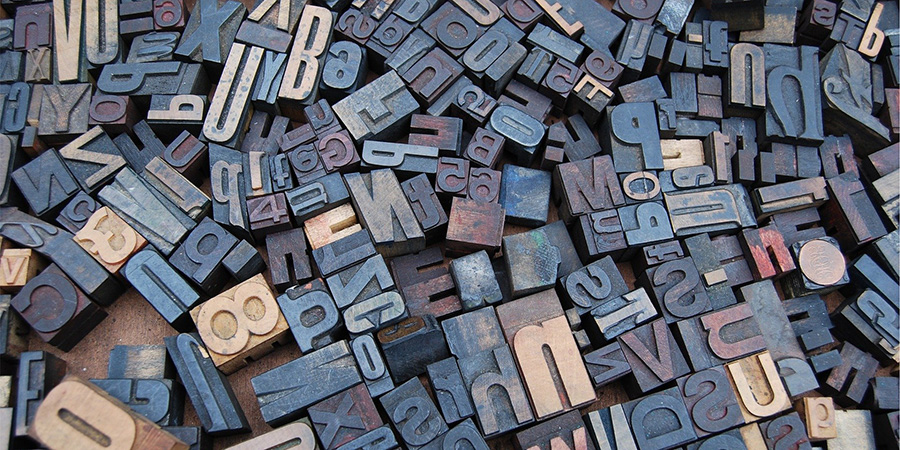
Formatting isn't the be all and end all of sitcoms, but it's good to get in the right practice from the start - otherwise, when it gets to the point commissioning executives are going to look at it, you'll have to add extra time to re-format it all.
As BCG Pro explains in its formatting section there's differences between how you write and layout a radio, television and stage script, so make sure you are aware of this before you begin. Having to go back through the TV-style script you made for a radio project, to add "FX" commands, would be painful.
Whilst you can write a script in Microsoft Word, getting dedicated script formatting software to help you is probably a good idea. It can save you time when it comes to adjusting the layout, and some offer other advantages on top too (like dealing with character names). There's a list of script software on BCG Pro - as you can see, some of them are good and yet free!
OK, you're probably ideally positioned to write that first line now. Ahead is a road of multiple drafts and much more learning, but having tackled the above topics it should hopefully at least now be an enjoyable and rewarding process for you.
Anyone can write plot and dialogue but to write it well takes knowledge and skill. This article doesn't cover that side of things, or all the other aspects of comedy writing (like how to pitch to producers). Falmouth's MA course covers it all though... take a look at the course offering here: Falmouth Flexible Online Masters Degree in Comedy Writing
If you'd like a taste of what the programme is like, why not sign up for our upcoming virtual Q&A? I'll be teaming up with one of our students to answer your questions and discuss all things comedy writing. Register to join us on 5 August, 12:30 BST.
This article is provided for free as part of BCG Pro.
Subscribe now for exclusive features, insight, learning materials, opportunities and other services for comedy creators.

